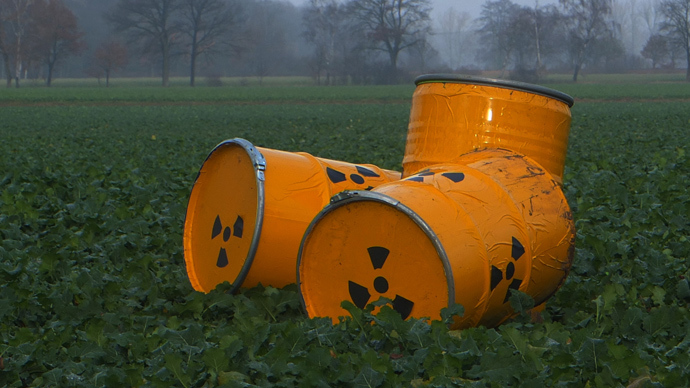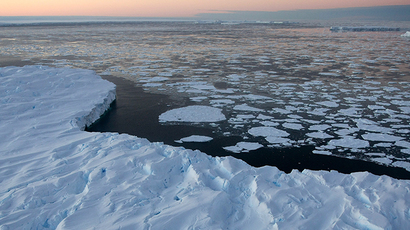Govt halts fee for non-existent nuke waste site after 30 years and $43 bn collected

The US Department of Energy will no longer collect a small electricity fee from the bills of nuclear energy customers which was originally intended to fund the construction and operation of a nuclear waste dump that was never built.
The charge, which will no longer be collected past Friday, was first instituted in 1983 with the aim of constructing a facility capable of disposing of what is now almost 70,000 metric tons of highly radioactive spent fuel. The waste is spread throughout nuclear reactors across the US.
The government collected $750 million from the charge each year, totaling $43 billion. It remains to be seen what Washington plans to do with that money.
“From the very infancy of the commercial nuclear power industry, the federal government has always stated that it would take responsibility for the (disposal) of high-level nuclear waste, and that hasn’t always happened,” Michigan Public Service Commissioner Greg White told KDVR-TV in Colorado. “The waste all sits at the plant sites where it was generated, despite the collection of some $40 billion.”
Vast amounts of decaying waste are expensive to store, terrible for the environment, and constitute a major risk to public health. Nuclear and utility industries have for years complained that the Energy Department has collected the money while doing nothing to ease the disposal process, eventually filing suit to stop the fees from being collected.
Last year, an appeals court determined that the government had no intention to actually build the dump and that it could not accurately estimate the cost of such a plan. It then ordered the Energy Department to suspend the collection of the fee, though it took nearly six months for the government to carry out the legal order, according to the Los Angeles Times.
“The federal courts have gotten fed up with what the Department of Energy is doing,” said Jay Silberg, the industry’s lead attorney in the case against the charges. “We want something in exchange for our money.”
It’s unlikely that customers will notice they are paying a fraction of a cent less on their bill from now on. An estimated $31 billion of the $43 billion that was collected sits in a trust fund that will accrue interest, likely until a plan for a dump is actually developed.
The initial $12 billion taken from that $43 billion sum was spent trying to develop a waste facility in Yucca Mountain, Nevada, although the project was stopped before any meaningful progress was made.
“I don’t see how it is a terrific win for anybody,” said Marta Adams, the chief deputy attorney general in Nevada who fought to stop the Yucca Mountain dump. “It relieves consumers of this charge but it doesn’t get rid of the waste.”
The Energy Department said this week that, despite the delays, lawmakers still hope to find a solution that works for all those concerned.
“When this administration took office, the timeline for opening Yucca Mountain had already been pushed back by two decades, stalled by public protest and legal opposition with no end in sight,” the Department of Energy said in a statement.
Meanwhile, Rep. John Shimkus (R-Illinois), chairman of the House Energy and Commerce Committee’s Environment and Economy subcommittee, welcomed the end of the fee but urged the government to continue pursuing a valid plan for a nuclear waste site.
“To get our nuclear future back on track, the secretary simply needs to carry out that obligation and restart Yucca Mountain,” Shimkus told The Hill. “Short of that, I am glad this annual theft of $750 million from electricity consumers has finally come to an end.”














